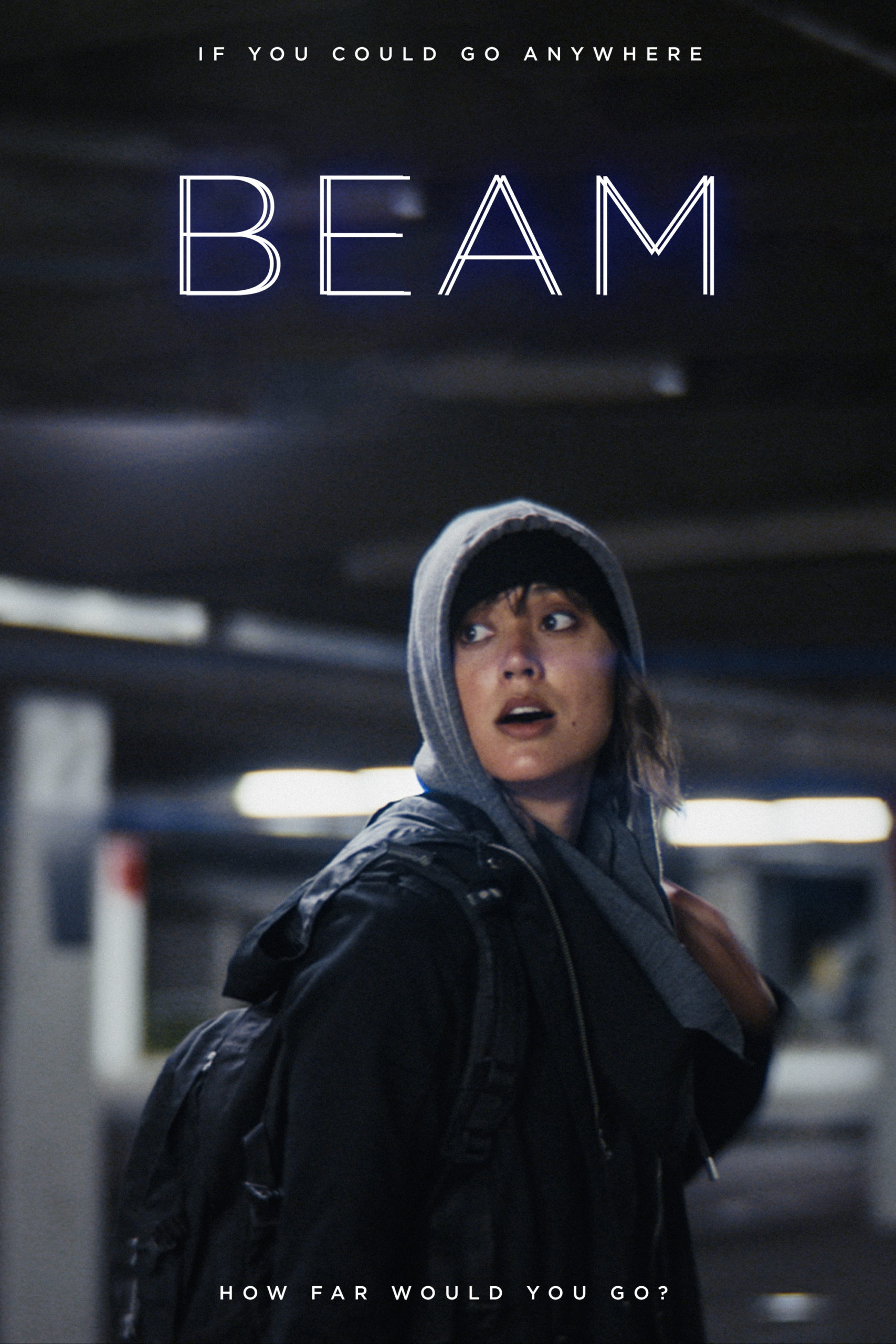
Jesse Gi
Born and raised in Los Angeles, CA, Jesse Gi is a second generation Korean-American writer, director whose stories focus on extraordinary endurance, sacrifice, and unflinching ambition influenced by his immigrant family and community. Jesse graduated from USC’s film program and has worked across studios from Lucasfilm, Warner Bros, and CBS on projects such as THE MANDALORIAN, BLACK ADAM, and DOCTOR SLEEP.
Jesse wrote, produced, and directed festival selected short films BEAM (DUST, LA Asian American Pacific Film Festival, Newport Beach Film Festival, LA Shorts Film Festival), a grounded sci-fi, action drama about a teleporting thief, and NEH (2021 HBO APA Visionaries), a comedy-drama about a Korean-American with no fluent Korean language skills. NEH is available to watch on HBO MAX.
Q & A
If the world you created in your film became a reality, is that a world you would want to live in? Is there a Sci-Fi world you’d buy a one-way ticket to?
I would want to live in the world of my film because I feel that teleportation would make life feel more accessible. Things would happen immediately; no need for cars or transportation, productivity would increase, more opportunities for exploring. But of course, people would figure out a way to capitalize or weaponize the power of teleportation, but I do think the immediacy would offer more opportunities. To live in a sci-fi world, I would want to live in the world of Star Trek. There is an optimistic sense of future, peace, and hope. Conflicts are mostly dealt through negotiations and with a goal reaching a peaceful understanding. As long as you stay away from the Starship Enterprise and its crew, you probably won’t get into any life threatening missions.
Name a Sci-Fi character you relate to on a spiritual level? Who is your Sci-Fi spirit animal/spirit alien?
A sci-fi character I deeply relate to is Marty McFly. He’s not brainy or deeply involved with science. He’s someone who knows absolutely nothing about the mechanics of time travel and is swept into misadventures that require him to learn the science on the fly (pun intended). I feel similar in film, where I don’t really have the in-depth knowledge or experience like my peers, and I often have to learn in the moment and adapt quickly for the shoot day.
Friend or Foe: humanoid robots with advanced artificial intelligence? What if robots start making their own Sci-Fi films? Will you support them in their endeavors?
Friend. I am curious as to see what a robot would think would make a good sci-fi film, but I would not support them. I don’t think a robot could replicate the uniqueness and creativity of a living being.
In 1996, Bugs Bunny recruited Michael Jordan and Bill Murray to form the greatest basketball squad of all-time, the Tune Squad; you’re Bugs, who’s on your Sci-Fi Tune Squad?
My Sci-Fi Tune Squad would consist of Doc Brown and Christopher Nolan. I would love to see those two hash out ideas and inventions. Doc Brown could make whatever insane idea from Nolan’s mind into a reality.
You’ve gotta go through some bad ideas to get to the good ones. Tell us one of your bad ideas. How do you get past the bad ones to find your spark?
One bad idea I had involved a story of a person trapped in a time loop. The story had no satisfying or justified reason to start or end. I simply had an idea for an interesting camera trick that I thought would be visually fun. But the story and characters were amorphous blobs. As I dug deeper and deeper into building a story and character, it felt forced, cheesy, and overdone. I myself became trapped in creating something that I didn’t connect with. To get over that hump, I always center on the emotion and heart of the story and the character who is to experience that very emotion. I try to create an extreme yet relatable circumstance for a character, building their backstory, rich enough to have a character venture off onto their own. Once that solid understanding of a character is built, I can simply drop the character into a wacky situation and see how they would react. Then, random unexpected spurts of inspiration form and hopefully leads to a spark.
Do you consider yourself part of a sci-fi community? Or when your brain is in the future and your body’s in the present, is that isolating?
I do not really consider myself part of a sci-fi community. I mostly enjoy sci-fi stories because of the imaginative technology and worlds involved in these stories. But often sci-fi centers on existential, ruminative questions about life and our future, and I find those very frightening and overwhelming. I am very much a person who is thinking in the present and what is in need of immediate attention.
Do you consider yourself more of an analog or digital person? What kind of balance do strike between the two? Is there a disconnect between the technology you make films about and the technology that you make films with?
I feel that I am a more analog person. The best way for me to retain information is through physical writing and note taking. I often feel somewhat paranoid that digital technology is unpredictable and can fail at a moment's notice, which I incorporate into my films. Often the best way to ground a sci-fi story or device is having the all-knowing, powerful, futuristic machine suddenly fail. That even a superior robot or weapon or device can have glitches and errors. In terms of filmmaking, fancy film digital cameras and high-tech rigs love to fail when time is of the essence. I do my best not to rely on VFX in post and ideally capture the effects in camera.
When you’re creating the props and sets that make a new world, where do you look for inspiration? How do you create objects that are relatable but unfamiliar?
For sets and props, I look at existing technology and environments in their first designs. I want to ground futuristic elements as if they could exist in our modern day world, but they also happen to express otherworldly abilities. I love combining different elements of technology from different industries to create a fictional device.
Lightning round: Star Wars or Star Trek? Philip K. Dick or William S. Burroughs? Practical or CGI? Dystopia or Utopia? Post Apocalypse or Pre Apocalypse?
Star Wars, Philip K Dick, Practical, Dystopia, Pre Apocalypse


